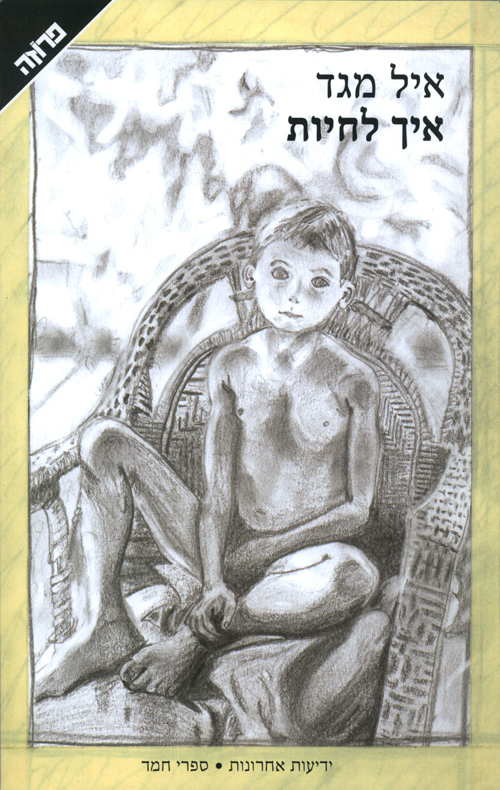
How to Live
This is the story of a not-very-young Israeli man who travels with his wife to Siberia to adopt an orphaned boy that the couple plans to raise in Israel. However, the main focus of How to Live is not the adoption process, intriguing as it may be, but the search for meaning. The book, written in a contemplative-lyrical style, takes the form of a diary in which the writer recounts the sense of emptiness that he experiences: his work with words does not satisfy him. He knows that the answer lies within him, but he needs a revelation in order to fully realize it. He has this revelation when he and his wife decide to go through with the adoption.
Megged depicts the experience as a sort of rebirth. Back in Israel, the new father takes the child, who has come from white, snowy Siberia, for a day on the sunny beaches of Jaffa. It is a primal moment: the child playing in the waves is like “the first man,” opening his eyes to the world for the very first time. Through this experience, the man is reborn along with his adopted son. He reconnects to the past, to the child within himself and senses the true meaning of life.

-
“ The more you read this finely distilled book the more you become aware that this is a theological book. What Hebrew philosophy has not managed to produce since Martin Buber is offered by this Jerusalem author in 109 short chapters of courageous, profound and sublime spiritual exposure.”
-
“ A fascinating and subversive book… Megged takes us to a higher, more existential sphere in the heart of man, a bare, primordial and thought provoking place. ”
-
“ The confessional tone, as well as the book’s frantic rhythm make it a splendid diary, a Russian fairytale that invites you to walk among the paths of soul and body.”
